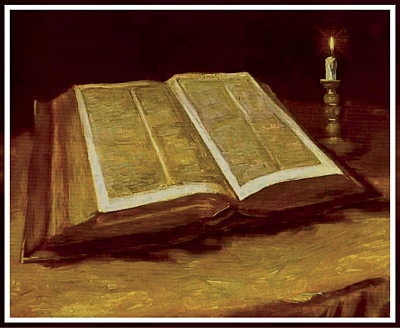It is awe-inspiring and humbling to learn more about the characteristics of our heavenly Father as we deepen our understanding of the titles of God in the Bible. The titles God gives Himself in His Word are one way that He lets us know Who He is and how He functions. By learning about His different functions, we can build our believing to see God work even more abundantly in our lives.
As we continue in our series, let’s look at the title Jehovah-roi, the Lord our Shepherd. Psalms 23:1 reads: “The Lord [Jehovah] is my shepherd [roi]; I shall not want.” Referring to Jehovah as a shepherd would have communicated God’s care very vividly to the people in Bible times. They lived in an agrarian, or farming, society where sheep were kept. In All the Divine Names and Titles in the Bible, Dr. Herbert Lockyer writes the following: “As a pastoral people Israel knew all about the features and functions of a true shepherd, and therefore could appreciate to the full all that this further title of Jehovah-Rohi held for their hearts.”
In addition, David, the writer of Psalm 23, would have understood better than most people what was required of a shepherd. He knew the life of a shepherd experientially. David saw God as his shepherd. He knew God would guide him, protect him, and care for him—just as a shepherd does for his sheep.
To help us better understand the importance of the title of shepherd as it relates to God, let’s first look at each word in the title Jehovah-roi. Then we’ll see how the Lord our Shepherd will guide, protect, and care for His people as a shepherd does his sheep.
The Hebrew word Jehovah refers to the Lord in relationship to His creation.
Genesis 2:4:
These are the generations of the heavens and of the earth when they were created, in the day that the Lord [Jehovah] God made the earth and the heavens.
Dr. Victor Paul Wierwille wrote about this title of God in Order My Steps in Thy Word: “In the second chapter of Genesis He uses the name Jehovah, denoting His relationship to what He created.” God as Jehovah has a relationship, an involvement or interaction, with that which He has created. The Lord, Jehovah, wants to be intimately involved in the lives of His people. (For further study, see “Jehovah—The Lord in Relationship to His Creation” in The Way Magazine, May/June 2011.)
With this understanding of the word Jehovah, now let’s look at the Hebrew word roi. Roi is a form of the Hebrew word raah (Strong’s number 7462). Raah is a verb and means “to tend, pasture, graze, or feed.” When this verb is used as a participle, it often functions as a noun—“the feeding (one)”—and in the King James Version is usually translated “shepherd.” In Psalms 23:1 the Hebrew has a form of this participle (roi), which is translated “my shepherd.” The word raah is first used in Genesis, chapter 4.
Genesis 4:2:
And she again bare his brother Abel. And Abel was a keeper [raah] of sheep, but Cain was a tiller of the ground.
Abel was a keeper of sheep. His occupation was to provide a pasture for his sheep—a place where he could tend to his sheep, where they could graze and feed as he watched over them and protected them. As the keeper of the sheep, he had this responsibility.
In Isaiah we see the Lord, Jehovah, functioning as a shepherd, raah, for His people.
Isaiah 40:10 and 11:
Behold, the Lord God [Jehovah] will come with strong hand, and his arm shall rule for him: behold, his reward is with him, and his work before him.
He shall feed his flock like a shepherd [raah]: he shall gather the lambs with his arm, and carry them in his bosom, and shall gently lead those that are with young.
In these two verses, we see God’s protection, care, and guidance. He gathers His lambs with His arm, exhibiting protection. He carries the lambs in His bosom, showing His care. He gently leads those that are with young, illustrating His guidance.
We see these same three qualities of Jehovah-roi, the Lord our Shepherd, in Psalm 23 as well as other verses. Note here how the Lord our Shepherd guides His people as a shepherd guides his flock.
Psalms 23:1-3:
The Lord is my shepherd; I shall not want.
He maketh me to lie down in green pastures: he leadeth me beside the still waters.
He restoreth my soul: he leadeth me in the paths of righteousness for his name’s sake.
The shepherd would always find the best pasture to feed his sheep and the best watering places to quench their thirst. Then he would lead the sheep there to eat and drink in peace. He provided rest, nourishment, and refreshment. Likewise, Jehovah-roi provides the right path for His people to be restored and refreshed in their souls….
This is an excerpt from the May/June 2013 issue of The Way Magazine.
Copyright© 2013 by The Way International. All rights reserved.
For more information on subscribing to The Way Magazine, Click Here

